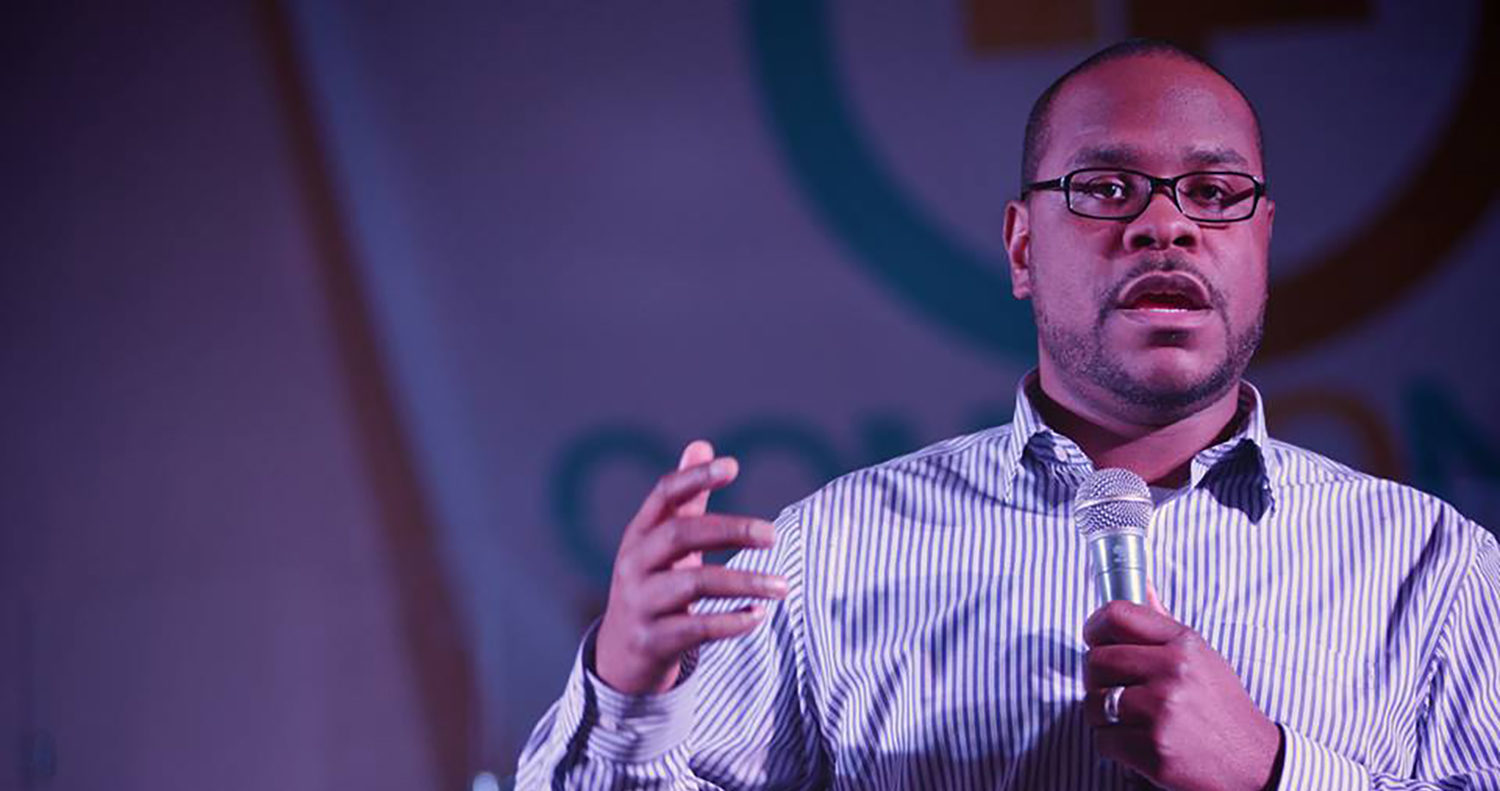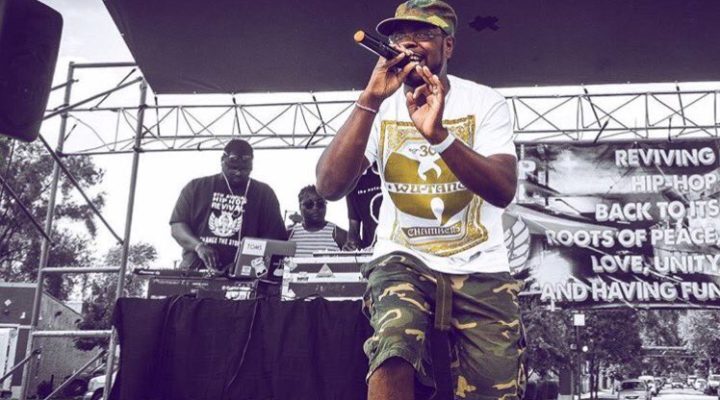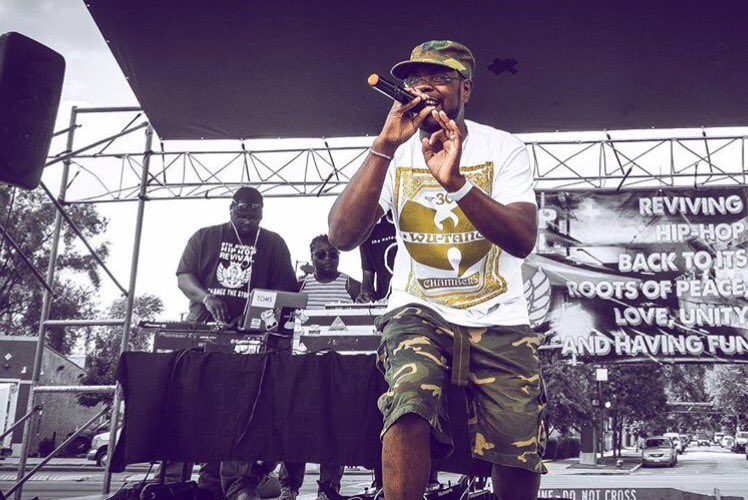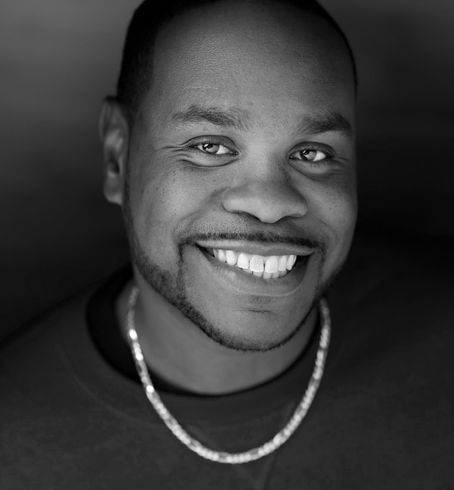Jonathan Brooks was introduced to faith growing up in a Missionary Baptist church on Chicago’s South Side. But he met Jesus through Christian hip hop.
That was in college, and since then the 38-year-old hip-hop artist and pastor has witnessed how both worlds can inspire ministry and spiritual growth.
“I saw that God wasn’t in this Sunday morning church box but that he was permeating through life,” said Brooks, whose hip-hop handle is Pastah J.
Nor are Brooks and his congregation, Canaan Community Church, much for staying in boxes.
The small church has become known in the West Englewood community — notorious to some, beloved and tight-knit to others — for its activism and for partnering with organizations and causes to bring positive change to its corner of the Southside. It’s also the neighborhood where Brooks grew up.
It’s what he cherishes about both his faith and the hip-hop culture that inspired him since childhood.
“For me, it’s always been the fact that it was a voice for the marginalized and for the oppressed,” Brooks said.
And the same is true about God, he added.
Brooks shared more about his life and ministry with Baptist News Global.
Where were you before returning to your home town?
I left Chicago for college in Tuskegee, Ala. I was at Tuskegee University, where I studied architecture.
Where and when did you hear a calling to ministry?
I went to church my whole life but really came to know Jesus in college. It was there, in my junior year, that I really felt a call to ministry. Or, I should say I felt a call to preach. … In the context I grew up in, you can preach and not be professional clergy. I figured I would be a reverend, but not necessarily a pastor. So, I finished my degree.
Did you work in architecture?
My senior year in college my mom had a stroke. This encouraged me to come back to Chicago. … I worked in architecture a while and realized I didn’t enjoy it. The career itself was not at all what I thought it would be. There was quite a bit of prejudice, and usually I was the only African American in the spaces I was in. … So I started substitute teaching and fell in love with the classroom. I went back to get a master’s in elementary education and taught school for a decade after that. In that time, about 2006, is when my transition into pastoral ministry happened. I wish I could say it had been a call.
You weren’t called into that ministry?
When I came back from school in 2002 I was working with the youth in the church, leading Bible studies, doing the hip-hop thing with a lot of the kids. … In 2006, the pastor came and said, “I need to get out of here. I’m moving to another church. I want you to be the pastor.”
What was your response to that?
I was not prepared for that at all. I said no. I had not been to seminary. I had no training. I was teaching school and didn’t think I fit the mold of a pastor as a young hip-hop guy.
He gave me an ultimatum. … He gave me a week to think about it and then he was going to announce that he was leaving. He would say the church is closing or that I am the pastor.
And now you’re the pastor.
This is a call I didn’t ask for. But I really believe if we’ll listen to God, we’ll find ourselves outside our comfort zones doing things we never thought we would be doing.
Why did your church drop the Missionary Baptist name?
We want to be a neighborhood community church, not a denominational church. It helped some who had a stumbling block with our denomination. … There were some who said, “I grew up Church of God in Christ, my grandma would kill me if I went to a Baptist church.” … So, we just took that stumbling block away. … Today we are multi-denominational, or you can say interdenominational.
Does your church operate on a community development model?
Yes, we are a community development corporation. We are part of the Christian Community Development Association. We believe God is intimately concerned with communities that have been forgotten or neglected. We believe God is with, and for, the oppressed. And we believe the people who have been oppressed are the ones with the answers.
What’s an example of that for your congregation?
A lot of churches come in and, say, open a food pantry open from these hours, and will tell people what they can take and hand out food. We walked, listened and learned. We held community meetings to ask what they felt like they needed. … They said we can purchase our own food, but no one puts a healthy store in the community. So we used resources from the church and the neighborhood to begin a co-op that meets every Monday. We go to Whole Foods and Trader Joe’s and to urban farmers and we bring it all back to the church.

Jonathan Brooks, also known as Pastah J when perfomring hip-hop, is the pastor of Canaan Community Church in the West Englewood community on Chicago’s Southside. (Photo/Pastahj.com)
Do you weave hip-hop into your ministry?
Hip hop is still my core, still the culture that most resonates with me, it is the way God speaks to me in so many different ways. … I use both faith-based and regular hip hop artists in counseling sessions and in preaching. We use it for worship in our church. We have DJ as part of a worship band. Hip-hop artists come and perform. In the middle of a hymn I might just bust out with a freestyle.
Has it been awkward ministering in the community where you grew up?
One of the most challenging things is that everybody knew Jonathan, or Pastah J, before I was a pastor. People will say, “Jay who used to run around here is the pastor now?” There is a confusion and weirdness. … It’s challenging trying to lead people who took care of you or who you ran with you when you were younger. But I don’t have to pretend to be anything. … It’s not about becoming and turning into something else. It is allowing God to use you as you are and trusting God will take care of those rough edges.



